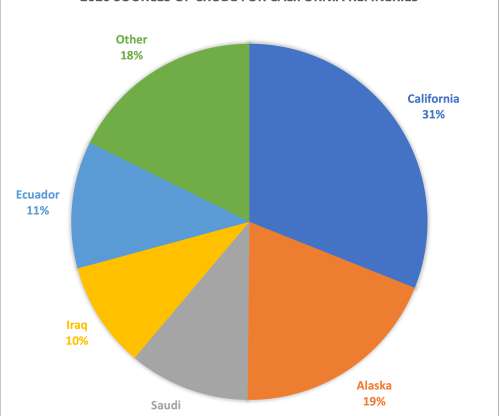California 2019 crude average carbon intensity up
Green Car Congress
JUNE 16, 2020
Pursuant to section 95489(c)(3)(B) of the Low Carbon Fuel Standard (LCFS) Regulation, the California Air Resources Board (CARB) Executive Officer has posted the final 2017 Crude Average Carbon Intensity calculation: 12.52 The three-year California Crude Average carbon intensity of 12.26 CI (gCO 2 e/MJ). Data: CARB. gCO 2 e/MJ.
















Let's personalize your content